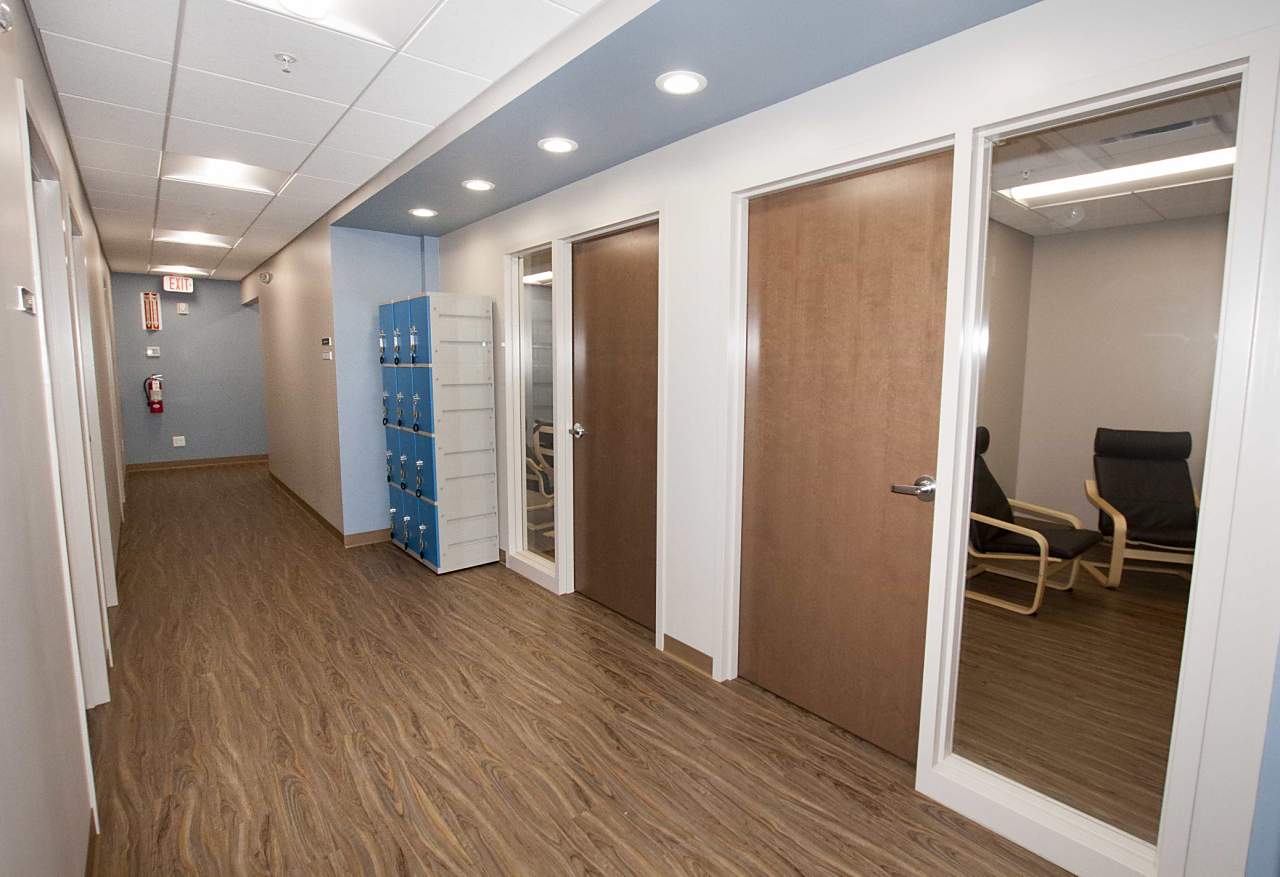Life-Changing Assistance: Why Pick Our Addiction Treatment Center
Life-Changing Assistance: Why Pick Our Addiction Treatment Center
Blog Article
Introducing the Relevance of Family Assistance in the Alternative Addiction Treatment Method
Family dynamics play a critical function in shaping an individual's journey via dependency and succeeding rehabilitation. The relevance of family members assistance transcends simple emotional support; it prolongs to producing a helpful setting that promotes sustainable and long-lasting healing.
The Duty of Household Characteristics
Family dynamics play a crucial function in shaping the end results of individuals undergoing all natural addiction therapy. The household unit is typically the main source of support, impact, and possible stress for individuals having a hard time with dependency. By involving member of the family in the treatment process, therapists can deal with underlying concerns, boost communication, and enhance relationships, all of which are important for lasting recovery.

Furthermore, entailing household participants in treatment sessions can boost the individual's assistance system, providing them with a network of encouragement and responsibility outside of formal therapy setups. By addressing household characteristics within the context of all natural dependency therapy, therapists can develop a more comprehensive and effective strategy to sustaining people on their journey to recuperation.
Enhancing Restorative Outcomes
By integrating different healing techniques and tailored treatment strategies, alternative addiction treatment programs intend to enhance outcomes for individuals seeking recuperation. These techniques assist individuals create coping approaches, enhance self-awareness, and promote behavioral modification.

In enhancement to customized treatment, team therapy and support sessions play an essential duty in boosting healing end results. These team setups offer individuals with a feeling of responsibility, motivation, and neighborhood, fostering a supportive environment important for long-term healing. Addiction Treatment Center. By integrating these various approaches, holistic dependency treatment programs can substantially boost the general well-being and healing journey of individuals battling with dependency
Building a Supportive Ecological Community
Central to this ecological community is the family members device, as domestic partnerships play a pivotal role in an individual's journey in the direction of sobriety. Beyond the family, an all natural dependency therapy strategy recognizes the relevance of broader area support.
Incorporating alternative methods such as mindfulness methods, workout routines, and dietary assistance can even more boost the general health of the individual and add to a lasting recuperation journey. By supporting a supportive ecosystem that attends to various facets of an individual's life, all natural addiction therapy can successfully help with lasting recovery and empower individuals to lead meeting, substance-free lives.
Resolving Underlying Family Members Problems
When delving into the complexities of all natural dependency treatment, it ends up being vital to explore the underlying familial dynamics that may affect an individual's trip in the direction of healing. Dealing with these underlying family members concerns is crucial in developing an encouraging setting for recovery and lasting soberness. Family members treatment sessions can aid recognize and fix problems, enhance communication, and reconstruct count on amongst relative. By including the family members in the therapy procedure, it permits a much more comprehensive understanding of the individual's struggles and supplies a system for collective healing.
Furthermore, exploring the source of dysfunction within the family can uncover patterns of habits that may have added to the advancement of addiction. By addressing these underlying issues, family members can collaborate to develop much healthier characteristics that support the individual's recovery trip. This collaborative approach not only benefits the specific seeking therapy but additionally fosters a feeling of unity and understanding within the family, promoting lasting recovery and total well-being.
Cultivating Long-Term Recovery
Exploring the dynamics of household assistance even more, fostering long-lasting recuperation entails developing lasting practices and interventions that advertise continued healing and soberness. In the context of dependency therapy, the participation of relative in the recovery get redirected here process can considerably influence the person's long-term success. By promoting an environment of continuous assistance and understanding within the family, individuals battling addiction can feel much more urged and motivated to keep their sobriety.
One trick element of cultivating long-term recovery is the application of aftercare assistance programs. These programs provide individuals with sources, advice, and proceeded treatment after completing official dependency therapy. By staying connected to a helpful network post-rehabilitation, people are better furnished to browse challenges and activates they might encounter in their day-to-days live.


Verdict
To conclude, household support plays a crucial duty in the holistic dependency treatment approach by affecting healing end results, developing a helpful community, resolving underlying family members problems, and fostering long-term recuperation. The characteristics within a household can significantly impact a person's trip in the direction of sobriety, making it vital for treatment programs to engage and entail member of the family in the recuperation process. This collaborative strategy can result in more effective and sustainable outcomes in dependency treatment.
Family members treatment sessions can help recognize and deal with patterns of codependency, making it possible for household members to develop limits and create healthier coping mechanisms.
Household therapy sessions can assist identify and resolve conflicts, boost communication, and reconstruct trust amongst household members. In the context of dependency treatment, the participation of family participants in the recovery process can significantly affect the individual's long-lasting success.In conclusion, family support plays a crucial function in the all natural addiction treatment strategy by influencing restorative end results, developing a supportive ecological community, dealing with underlying family members issues, and fostering long-lasting recuperation (Addiction Treatment Center). The dynamics within a additional resources household can substantially impact an individual's journey in the direction of soberness, making it important for treatment programs to entail and involve household participants in the recovery procedure
Report this page